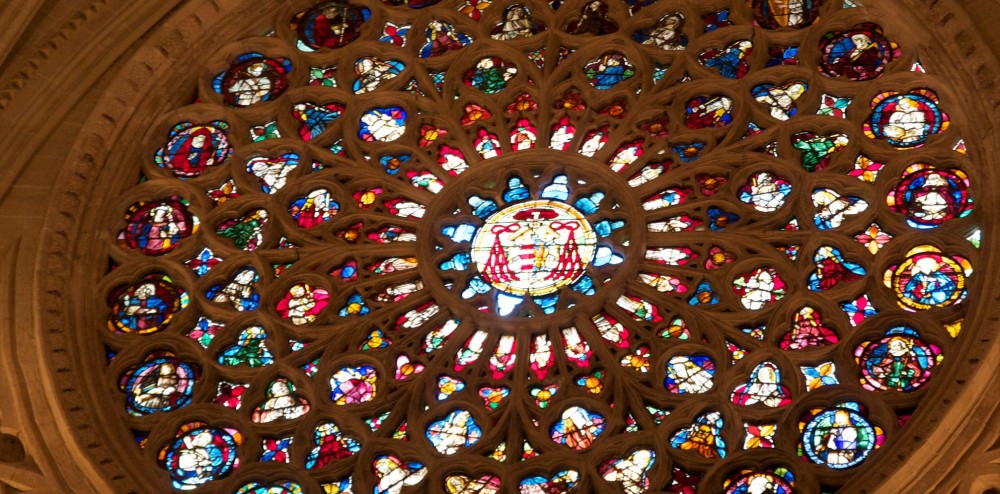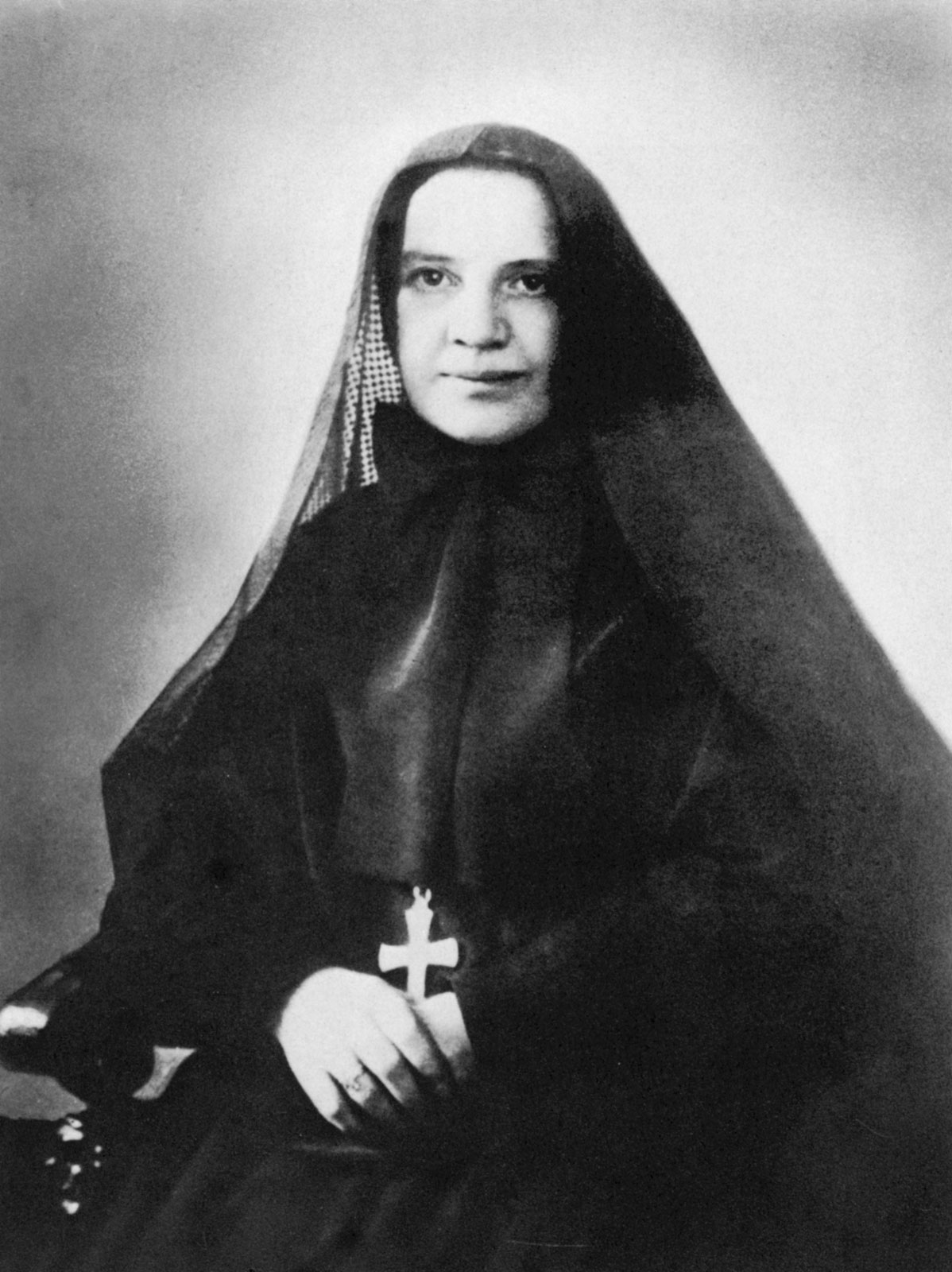 As we enter the seasons of the Church’s life serving God and neighbor, we can examine riches of the past in specific prayers, in this case the antiphons before and after the Marian canticle (Luke 1:46-55) of Vespers (Evening Prayer) from December 17-23.
As we enter the seasons of the Church’s life serving God and neighbor, we can examine riches of the past in specific prayers, in this case the antiphons before and after the Marian canticle (Luke 1:46-55) of Vespers (Evening Prayer) from December 17-23.
These hymnic texts incorporate phrases and themes of the Jewish Scriptures into the Church’s expression of hope in preparing for the feast of the Nativity of Jesus. Because these phrases have been taken out of context, we are reminded of the Second Vatican Council’s teaching in the Dogmatic Constitution on Divine Revelation about the Old Testament that “these books, divinely inspired, preserve a lasting value” (Dei Verbum 15). “God, the inspirer and author of the books of both Testaments, in his wisdom has so brought it about that the New should be hidden in the Old and that the Old should be made manifest in the New” (16). As we admire the impressive knowledge of the hymn writer, we might explore more deeply the images and allusions incorporated into the prayers celebrating the wonderful surprises that Christian faith celebrates as we contemplate the message that frames the hymn of Mary (Luke 1:46-55).
The Divine Office, with recitation of the Psalms over seven “hours” (see Psalm 119:164), complemented the Sacraments in the daily life of monks and religious women. Now many lay people use the Morning and Evening Prayer as part of their daily devotions.
The prayers in St. Luke’s Infancy Narrative became the Gospel passages for Lauds (Morning Prayer), Vespers (Evening Prayer) and Compline (Night Prayer) each day. These prayers are attributed to Zechariah, the father of John the Baptist (Luke 1:68-79), the Blessed Virgin (Luke 1:46-55) and Simeon (Luke 2:29-32).
In the Divine Office a special prayer called an antiphon precedes and closes each Psalm or Canticle and these Lucan prayers. The antiphons in Latin for Vespers from December 17-23 may be traced back to the eighth century. The first letter of each title in these prayers seems to have a message if read in reverse order: ERO CRAS means “I will be [here] tomorrow.”
The English version of these prayers is now the Alleluia verse before the Gospel of daily Mass, so has come to the attention of people participating in the daily Eucharistic Liturgy.
December 17 Sapientia (Wisdom Solo 7:21-30)
O Wisdom of our God Most High,
guiding creation with power and love:
come to teach us the path of knowledge!
We all recall the Greek and Latin terms for wisdom – Sophia and Sapientia. In Jewish reflection on Genesis 1, the hymn of creation in seven days, God created in Wisdom – guiding the divine omnipotence into the ordering of the universe. The prologue (John 1:1-18) of the Fourth Gospel celebrates the Word of God, manifesting divine love through history. For Christians, Jesus is the power of God and the Wisdom of God (1 Corinthians 1:24). The Wisdom of Solomon celebrates the manifold dimensions of Wisdom (7:22-30), as does the Book of Sira (24:1-22), identifying Wisdom and Torah. Jesus comes to show us the path to knowledge of God the Father.
December 18 Adonai (Exodus 3:14; Judith 16:16)
O Leader of the House of Israel,
giver of the Law to Moses on Sinai:
come to rescue us with your mighty power!
The Hebrew word Adonai is the common substitute for the sacred four-letter Name (YHWH) revealed to Moses in the burning bush at the foot of Mount Sinai (Exodus 3:14). Christians know the title from Jerome’s version of the Book of Judith, where the word occurs in Latin letters (16:16). Christians understood that the great mysteries of human salvation were encapsulated in this revelation to Moses (see Matthew 22:23-33, where Jesus teaches the doctrine of resurrection to a higher level of existence for eternity from Exodus 3:6). In Christian piety Byzantine artists portray Mary and the Infant Jesus in the burning bush. After God freed Israel from Egyptian servitude, Moses led the twelve tribes to Mount Sinai where they received the Torah (Law).
The Greek translation of Adonai is Kyrios, the title that is given to Jesus in the hymn which celebrates the Incarnation, Death-and-Resurrection whereby he rescued humanity from slavery to sin and “every tongue confesses that Jesus Christ is Lord, to the glory of God the Father” (Philippians 2:6-11).
December 19 Radix (Isaiah 11:1)
O Root of Jesse’s stem,
sign of God’s love for all his people:
come to save us without delay!
The future of the Davidic dynasty was assured through the divine promise mediated by Nathan the prophet. “Your house and your kingdom shall endure forever before me; your throne shall stand firm forever” (2 Samuel 7:16). Although the Babylonian exile seemed to crush this dynasty, people of faith looked for a new David anointed to bring this prophecy to fulfilment. “A shoot shall sprout from the stump of Jesse (David’s father) and from his root a bud shall blossom” (Isaiah 11:1-2). In the future this king will reach out to the nations, bringing the promise that “all the families of the earth” would be blessed in the name of Abram (Genesis 12:3). “On that day, the root of Jesse, set up as a signal for the nations, the gentiles will seek out, for his dwelling shall be glorious” (Isaiah 11:10). For Christians, Jesus is the sign of God’s love for all his people, so the petition of each generation is “come to save us without delay!”
December 20 Clavis (Isaiah 22:22; Apocalypse 3:7)
O Key of David,
opening the gates of God’s eternal Kingdom:
come and free the prisoners of darkness!
In a peaceful kingdom the descendant of David delegated authority to a “mayor” for the city of Jerusalem. When Shebna failed, the prophet brought the judgment of God upon him and he was replaced by Eliakim, son of the priest Hilkiah. “He shall be a father to the inhabitants of Jerusalem and to the house of Judah, I will place the key of the House of David on his shoulder; when he opens, no one shall shut when he shuts, no one shall open” (Isaiah 22:21-22).
Jesus is given the title “key of David,” with allusion to Isaiah 22, in the letter to the Christians of Philadelphia (Apocalypse 3:7-8). As Lord he assures each person who is faithful that the victor will enter the new Jerusalem. In the meantime Simon Peter has received a new name and has received the keys to the Kingdom of heaven, with authority on earth in relation to eternal goals (see Matthew 16:17-20). Jesus will come “to shine on those who sit in darkness and the shadow of death” (Luke 1:79). His mission “to proclaim liberty to captives and release to prisoners” (Isaiah 61:1) is completed when he opens the gates to the Father’s kingdom.
December 21 Oriens (Jer 23:5; Zech 3:8, 6:12)
O Radiant Dawn,
splendor of eternal light, sun of justice:
come and shine on those who dwell in darkness and in the
shadow of death.
The contrast between light and darkness is linked to the moral order. Human beings alienated from God wander in darkness and live in folly until they are graced with the gift of spiritual light. The Greek word for “Radiant Dawn” also renders the Hebrew term for “the righteous shoot,” son of David “who shall do what is just and right in the land” (Jeremiah 23:5; see Zechariah 3:8 and 6:12). John the Baptist prepared for “the tender mercy of our God by which the daybreak from on high will visit us to shine on those who sit darkness and in the shadow of death (Luke 1:78-79). As the righteousness of God the Father, Jesus comes to all who are in awe of the divine Name “as the sun of justice (righteousness) with healing in its rays” (Malachi 3:2).
December 22 Rex (Haggai 2:8; Psalm 118:22)
O King of all nations and keystone of the Church:
come and save man, whom you formed from the dust!
“The Lord shall reign forever and ever” (Exodus 15:18) constitutes the statement of Israel’s faith in the Song of Moses at the sea. God’s triumph over Pharaoh, who claimed divine kingship, is the beginning of Israel’s participation in the prerogative of royalty, “You shall be to me a kingdom of priests, a holy nation” (Exodus 19:6; 1 Peter 2:9; Apocalypse 5:10). The nations will acknowledge God’s royal authority and bestow gifts on the Temple as the great king’s house (Matthew 5:33). As Son of David “Jesus will rule over the house of Jacob forever and of his kingdom there shall be no end” (Luke 1:33), extended to all the nations in the context of eternity (see John 18:36).
The keystone or capstone is the one which completes the arch; usually it had to be cut to fit, but in this case it has been rejected by the builders for another place but finally was seen to fit this place exactly (see Psalm 118:22; Matthew 21:42; Luke 20:17; Acts 4:11; Romans 9:33; 1 Peter 2:7).
The work of Jesus reaches all humanity, and completes the vocation of the first human being, formed from the earth (Genesis 2:7). Byzantine artists portray the crucifixion with the blood of Jesus touching a small skull buried under the place where the Roman soldiers erected the cross. This depicts the legend that Adam took a seed from the tree of life and planted it near Jerusalem, in the valley where he was buried. This explains the meaning of Golgotha, the Place of the Skull (John 19:17), called Calvaria in Latin.
December 23 Emmanuel (Isaiah 7:14, 8:10; Genesis 49:10)
O Emmanuel, our King and Giver of Law:
come to save us, Lord our God!
The title Emmanuel (“God [is] with us” from Isaiah 7:14; 8:10) refers to the promise made by Isaiah to King Ahaz, a timorous descendant of Kind David. The Hebrew text speaks of a young woman (almah, not the technical term for virgin) who will give birth to a son who will be a sign that threats to the kingdom of Judah will evaporate. When the prophets were translated into Greek the noun Parthenos (virgin) enhanced the marvel of the prediction, seen in the light of Isaiah 9:5-6; 11:1-16; Jeremiah 23:1-7; Ezekiel 34:1-31 about the Davidic messiah. During a time when the Davidic dynasty seemed to be but a dead stump, the translator expressed hope for the future. Thus the early Christian community pointed to Jesus as Emmanuel (Matthew 1:23; 18:20; 28:20) as a key motif of the Gospel.
David’s descent from Judah is taken as the way to understand Jacob’s last words depicting Judah as a lion, the king of beasts (Genesis 49:10). Christians accept Jesus as their King and Lawgiver. The last petition in the series exhorting him to come with the gift of deliverance and salvation focuses again on us.
These prayers were created as a frame for the hymn of Mercy and place the Church’s hope around the celebration of Mary during her visit to Elizabeth. Placing them before the Gospel for the daily Mass between December 17 and 23 enables the faithful to savor them each year in two worship settings. May they bring the message of Advent to the faithful everywhere!
The antiphons are taken from Catholic Household Blessings & Prayers.

